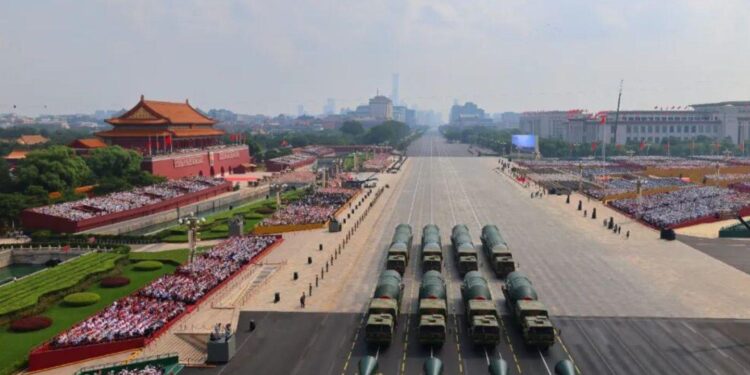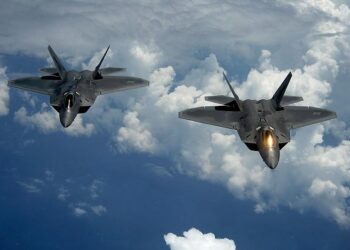China has issued a cautious response following recent reports that the Trump administration is considering new tariffs targeting Russian imports. The potential measures, aimed at increasing economic pressure on Moscow amid ongoing geopolitical tensions, have prompted Beijing to call for stability and dialogue. As the United States reconsiders its trade policies amid complex relations with both Russia and China, analysts warn of the broader implications for global markets and diplomatic ties. This article examines China’s official stance and the possible ripple effects stemming from the latest developments in U.S. tariff strategies.
China Signals Strategic Concerns Over New US Tariffs Targeting Russia
China has expressed significant apprehension regarding the United States’ newly proposed tariffs aimed at Russia, viewing them as a potential threat to regional stability and global economic balance. Chinese officials emphasize that these measures could inadvertently disrupt established trade networks and deepen geopolitical rifts, particularly in Eurasia. Beijing’s unease stems from concerns that the tariffs might escalate tensions beyond the bilateral scope of US-Russia relations, ultimately drawing China into broader economic and diplomatic conflicts.
Key points highlighted by Chinese representatives include:
- Potential negative impact on China’s own economic interests linked to Russia.
- Risks of undermining multilateral trade agreements and cooperation.
- The necessity for diplomatic dialogue over unilateral punitive actions.
| Aspect | China’s Concern | Possible Effect |
|---|---|---|
| Trade Relations | Disruption in supply chains | Reduced bilateral trade volume |
| Geopolitical Stability | Increased regional tensions | Heightened diplomatic strain |
| Economic Growth | Indirect damages via sanctions | Slowed market expansion |
Analyzing Economic Impacts of Fresh Trump Tariff Measures on Sino-Russian Trade
Recent tariff adjustments introduced under the Trump administration have prompted significant shifts in the dynamics between China and Russia, two crucial players in the Eurasian economic landscape. The increased duties on select Russian exports have raised concerns regarding supply chain disruptions and cost escalations. Economists suggest that these measures could compel Chinese enterprises to reassess their import strategies, potentially increasing reliance on alternative markets or domestic substitutes. Key implications include:
- Heightened transaction costs for Sino-Russian trade on affected commodities.
- Acceleration of bilateral negotiations seeking tariff exemptions or mitigations.
- Potential reconfiguration of regional trade routes to circumvent tariff barriers.
To illustrate the shifting trade volumes between the two nations under recent tariff pressures, the following table outlines export value trends before and after the implementation of new duties:
| Year | Russia to China Exports (Billion USD) | China to Russia Imports (Billion USD) |
|---|---|---|
| 2019 | 90.5 | 55.3 |
| 2020 | 92.7 | 57.8 |
| 2021 (Post-Tariff) | 85.4 | 54.1 |
Analysts remain watchful for China’s strategic responses, which may involve leveraging diplomatic channels or economic instruments to buffer the negative repercussions. Meanwhile, Russian exporters face pressure to innovate and diversify their market outreach to sustain growth amid increasing geopolitical complexities.
Experts Urge Beijing to Strengthen Diplomatic Channels Amid Escalating Trade Tensions
Amid the recent surge in trade frictions linked to new U.S. tariffs reportedly targeting China due to alleged ties with Russia, specialists emphasize the urgent need for Beijing to expand and reinforce its diplomatic engagements. Analysts argue that misunderstandings and heightened rhetoric could deepen existing economic divides, impacting global markets and investor confidence. They advocate for a multidimensional diplomatic strategy focusing on dialogue with Washington and international stakeholders alike to pre-empt further escalation.
Key recommendations highlighted by experts include:
- Enhanced communication channels between trade representatives to clarify policy intentions swiftly.
- Regular bilateral consultations to address emerging concerns and foster economic cooperation.
- Strategic use of multilateral forums to build alliances and counterbalance protectionist measures.
| Diplomatic Action | Purpose | Expected Outcome |
|---|---|---|
| Direct Trade Talks | Clarify tariff impacts | Reduce misunderstandings |
| Engagement in WTO | Leverage dispute resolution | Protect legal trade rights |
| Joint Economic Committees | Promote cooperation | Stabilize economic relations |
To Conclude
As developments continue to unfold, China’s response to the latest reports of potential U.S. tariffs tied to Russia underscores the complex geopolitical tensions influencing international trade policies. Observers will be watching closely to see how Beijing navigates these challenges amid broader diplomatic and economic considerations. Further updates are expected as the situation evolves.
















